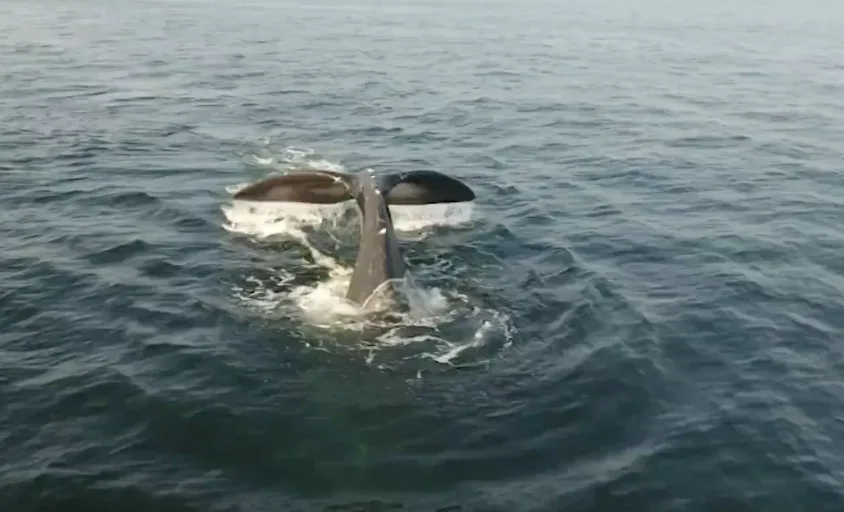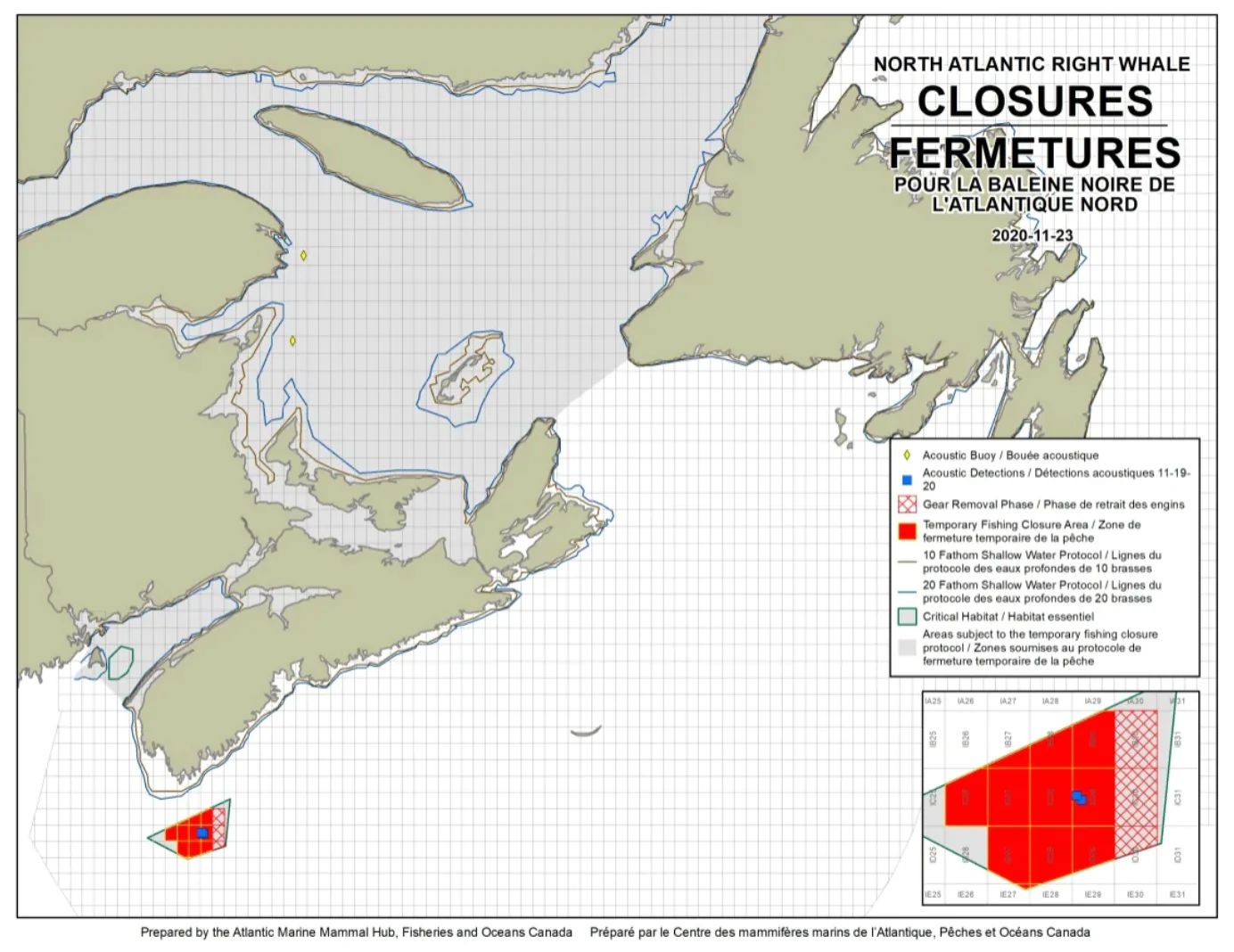
Late-year detections of endangered right whales close multiple N.S. fisheries
For the second time this month, Canada has ordered a temporary fishery closure in the Roseway Basin off southern Nova Scotia after multiple detections of endangered North Atlantic right whales in the area.
The latest order, issued Monday, closes several fisheries until further notice and could affect the lucrative commercial lobster fishery when the season opens next week.
"We intend to conduct an aerial survey of the area in the coming days to determine if there continues to be [right whale] presence," Barre Campbell, a spokesperson for the Department of Fisheries and Oceans, said in a statement Monday night.
"Management measures will continue to be applied if right whales are detected."
ACOUSTIC SENSORS DETECT WHALES
Since Nov. 9, acoustic sensors on board a marine glider cruising the area made 11 separate right whale detections.
"It could be one animal calling over all of that period of time. It's more probable that it was multiple animals that happened to come through. But how many?" said Fred Whoriskey, executive director of the Ocean Tracking Network, which deployed the glider in collaboration with the Ocean Frontier Institute.
"We can't tell because all we're doing is picking up a call. Our algorithms on board the machine that is detecting the calls are saying that's a right whale."
The Roseway Basin — located approximately 20 nautical miles, or roughly 37 kilometres, south of Cape Sable Island — has been designated a critical habitat for the whales, which used to feed there in late summer.
SEE ALSO: Wakeboarders have close encounter with killer whales in B.C.
WATCH BELOW: HUMPBACK WHALE WAVES HELLO TO TOURISTS IN NOVA SCOTIA
SIGHTINGS STUMP SCIENTISTS
Sightings have become rarer in recent years as the critically endangered whales moved north into the Gulf of St. Lawrence with disastrous results.
Since 2017, 20 have died in the gulf, caused in some cases by vessel strikes and gear entanglements. No deaths have been reported so far in 2020.
"What we do know is something massive has changed in the way the right whales are interacting with our ocean here right now. And so it's very hard to say what is normal anymore, and this is basically a part of that. They were in Roseway for many, many years, and suddenly disappeared a few years ago. Now suddenly we're picking up a few," said Whoriskey.
"We don't know whether at this particular point in time if these are transitory animals that are on their way south for the winter — they probably are — or whether there are some that have moved in and tried to occupy it for longer periods of times."

This map from the Department of Fisheries and Oceans shows the temporary fishing closure in the Roseway Basin off Nova Scotia. (DFO)
The detection means fishing for multiple species is closed until further notice. That will apply to lobster and crab when those seasons open.
Because of a forecast for bad weather, fishermen have been given until Thursday to remove gear from parts of the Roseway Basin where the whales were most recently detected.
DFO had reopened some, but not all, parts of the Roseway Basin that were closed temporarily earlier this month.
UNUSUALLY LATE IN THE SEASON
Sean Brillant of the Canadian Wildlife Federation said detections in Canadian waters this late in the year are unusual, but DFO is doing the right thing.
"The fact that they're taking this new information and acting on it in a way to try and prevent entanglements is encouraging. This is the kind of adaptive and strong leadership we need to see. Nobody wants to be closing these fisheries," said Brillant.
"But at the same time, these rules are important to try and prevent this accidental harm that can happen to these animals."
WHALES' BEHAVIOUR NOT UNDERSTOOD
The implications for the lobster fishery are potentially dramatic.
Lobster Fishing Areas 33 and 34 from Halifax to Digby are the most valuable in Canada. Combined landings in 2018-19 were valued at $490 million.
Fishermen there have largely been spared the intrusive measures taken to protect the whales elsewhere in the region. It was always presumed the whales had migrated out of Canadian waters before the season opened in late November or early December.
"What we're trying to do is protect the whales, but we're also trying to protect Canadian fisheries. Obviously there's going to be a huge problem if we have mortalities caused by our fisheries and then buyers begin to boycott Canadian seafood products," said Whoriskey.
"For us, as scientists encountering this all of a sudden, it's very uncomfortable, and we don't really understand what the whales are doing or why they're doing it right now.
"I personally am hopeful that this is a migratory movement of the animals and they are heading south, and heading south fairly fast, so the fishery can reopen again fairly quickly and get these guys back out in the water."
This article, written by Paul Withers, was originally published for CBC News.










